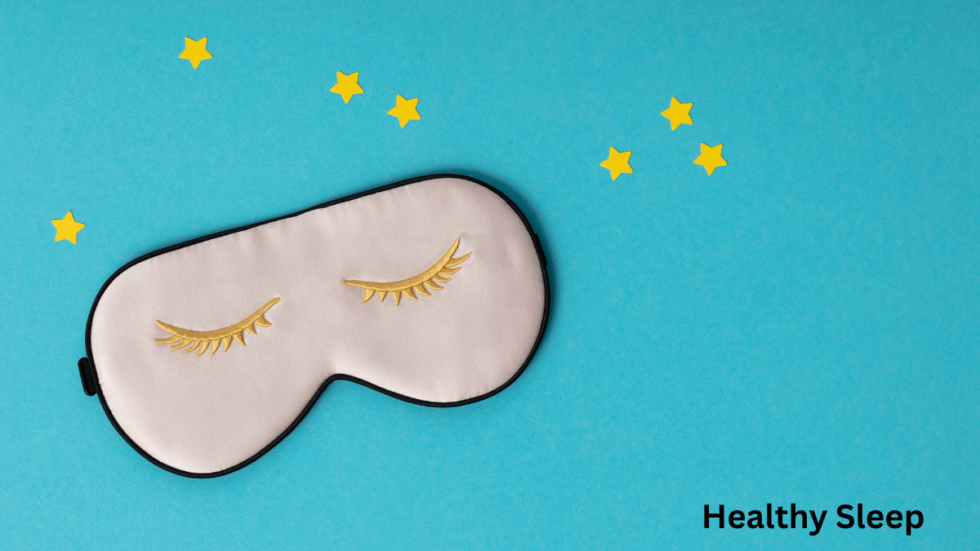
About Healthy Sleep:
Getting good sleep at night is the pillar of health. Occasional sleepless nights are ok, but continued sleepless nights lead to various health concerns, including immunity, poor concentrations, weight gain and risk of chronic illness. Quality of sleep is the key to full daytime alertness. Creating, practising and maintaining good sleep hygiene helps you sleep better and live healthier.
If you are struggling with falling asleep, waking up frequently, etc., here are tips for helping you sleep better and live healthier.
1.Consistent with healthy sleep schedule:
set your internal body clock to a circadian rhythm. Fix a sleep routine of going to bed and waking up at the same time.
Tip: set abedtime of 7-9 hours for sleep and stick to that.
2. Create a relaxing bedtime:
a calming routine to give signals to your body that it’s time to sleep, like avoiding screen time, including book reading, taking a bath, meditating, etc.
3.Observe your healthy sleep environment:
The bedroom should be comfortable and relaxing for it easier to fall and stay –asleep.
Choose the right bedding: use good-quality mattresses and pillows that support your sleeping position.
- Keep it cool: A temperature between 60–67°F (15–19°C) is ideal.
- Darken the room: Use blackout curtains or an eye mask to block light.
- Reduce noise: Use a white noise machine if you’re in a noisy environment.
4.Limits Screen Time Before Bed:
Minimizing screen time over the phones, TV, tablets, etc., before bed can trick your brain into thinking it’s still daytime. Electronic devices emit blue light, which can reduce the production of melatonin hormones that promote sleep.
What you consume during the day—and especially in the evening can significantly impact your sleep.
- Caffeine: Avoid caffeine at least 6 hours before bed. This includes coffee, tea, soda, and even chocolate.
- Alcohol: While alcohol might make you sleepy initially, it disrupts healthy sleep cycles and can lead to frequent awakenings.
- Heavy meal: Eating large meals before bedtime can cause discomfort or indigestion. If you’re hungry at night, opt for a light snack like a banana or a small bowl of oatmeal.
5. Aware of what you eat and drink:
What you consume during the day—and especially in the evening can significantly impact your sleep.
- Heavy meal: Eating large meals before bedtime can cause discomfort or indigestion. If you’re hungry at night, opt for a light snack like a banana or a small bowl of oatmeal.
- Caffeine: Avoid caffeine at least 6 hours before bed. This includes coffee, tea, soda, and even chocolate.
- Alcohol: Alcohol might make you sleepy initially, but it disrupts healthy sleep cycles and can lead to frequent awakenings.
6.Regular Exercise But Not Too Late:
Exercise reduces stress, stabilizes your mood, and is excellent for sleep, but an intense workout too close to bedtime can raise heart rates and body temperature, making it difficult to fall asleep.
Tip: Finish your workout before at least 2-3 hours before bed.
7. Manage Stress and Anxiety:
Racing thoughts, anxiety, or stress can cause you to fall asleep. Managing your mental well-being is just a way for healthy sleep hygiene as physical habits.
Here are a few stress-reducing techniques to try:
- Deep breathing exercises
- Progressive muscle relaxation
- Mindfulness meditation
- Keeping a journal to unload your thoughts before bed
If anxiety or stress consistently disrupts your healthy sleep, consult with a mental health professional.
8. Avoid Napping Late in the Day:
Naps can be beneficial, especially if you didn’t get enough rest the night before. Long or late-day naps can make it harder to fall asleep at night.
Tip: If you nap, limit it to 20–30 minutes and take it in the early afternoon. Power naps can boost your alertness without affecting your nighttime rest.
9. Use Your Bed Only for Sleep and Intimacy:
Strengthens your mind with bed and sleep. Avoid Screen time and doing work in bed. If you are lying awake for more than 20 minutes, get up and do a quiet, non-stimulating activity in low light until you feel sleepy again.
10. Seek Help if Healthy Sleep Issues Persist:
If you’ve tried all these tips and still struggle with sleep, you may be dealing with a sleep disorder such as insomnia, sleep apnea, or restless legs syndrome. These conditions often require medical treatment.
Tip: track your sleep habits, duration, and how you feel the next day. This can help a healthcare provider diagnose and treat the issue more effectively.
Conclusion
Good sleep hygiene is all about building consistent habits that support better sleep over time. By taking steps to regulate your schedule, create a sleep-friendly environment, and manage your lifestyle choices, improve the quality of your rest.
In today’s speedy world, sleep often becomes secondary because of busy schedules and digital distractions. But investing in your sleep is one of the best things you can do for your physical, mental, and emotional well-being.
“Sweet dreams start with wise choices—make healthy sleep a priority, and your body will thank you”